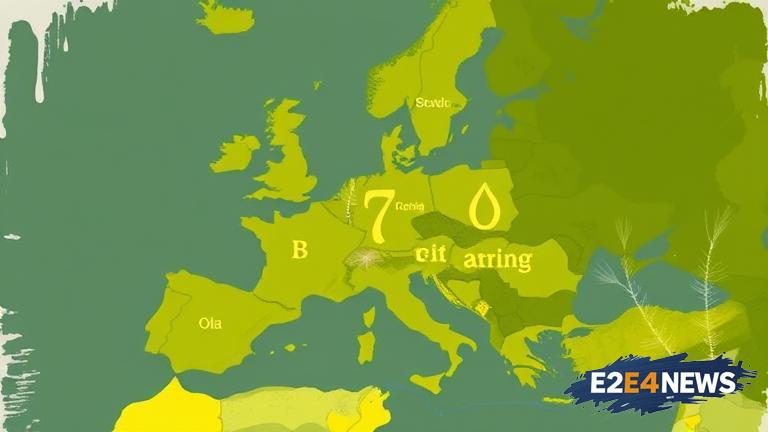The European olive oil industry has experienced a significant bounce back in exports, with a 10% increase in the first quarter of the year. This rebound is a promising sign for the industry, which had previously seen a decline in exports due to various factors such as weather conditions and global market trends. The increase in exports is largely attributed to the growing demand for high-quality olive oil in countries such as the United States, China, and Japan. European olive oil producers, particularly those in countries such as Spain, Italy, and Greece, are benefiting from this surge in demand. The quality and authenticity of European olive oil are highly regarded globally, and consumers are willing to pay a premium for these products. The European Union’s protection of geographical indications and denominations of origin has also helped to promote the authenticity and quality of European olive oil. As a result, European olive oil exports are expected to continue to grow, with some predictions suggesting a 15% increase by the end of the year. This growth is not only beneficial for European olive oil producers but also for the economy as a whole. The olive oil industry is a significant contributor to the agricultural sector in many European countries, and an increase in exports can have a positive impact on employment and economic growth. Furthermore, the growth in exports is also expected to have a positive impact on the environment, as olive oil production is considered a more sustainable and environmentally friendly option compared to other types of oil production. The European olive oil industry is also investing heavily in research and development, with a focus on improving yields, reducing waste, and promoting sustainable practices. This investment is expected to pay off in the long run, with the industry becoming more efficient and competitive. In addition, the growth in exports is also expected to lead to an increase in tourism, as consumers become more interested in learning about the production process and visiting olive oil-producing regions. The European olive oil industry is also working closely with governments and regulatory bodies to promote the industry and protect the interests of producers. This collaboration is expected to lead to the development of new policies and initiatives that will support the growth of the industry. Overall, the rebound in European olive oil exports is a positive sign for the industry, and it is expected to have a significant impact on the economy, environment, and society as a whole. The industry is expected to continue to grow and evolve, with a focus on quality, sustainability, and innovation. As the demand for high-quality olive oil continues to grow, European producers are well-positioned to meet this demand and capitalize on the opportunities that it presents. With its rich history, cultural significance, and commitment to quality and sustainability, the European olive oil industry is poised for continued success and growth. The future of the industry looks bright, with new opportunities and challenges on the horizon. As the industry continues to evolve, it is expected to remain a significant contributor to the agricultural sector and the economy as a whole. In conclusion, the rebound in European olive oil exports is a promising sign for the industry, and it is expected to have a positive impact on the economy, environment, and society. The industry is well-positioned for continued growth and success, and it is expected to remain a significant player in the global market for years to come.





